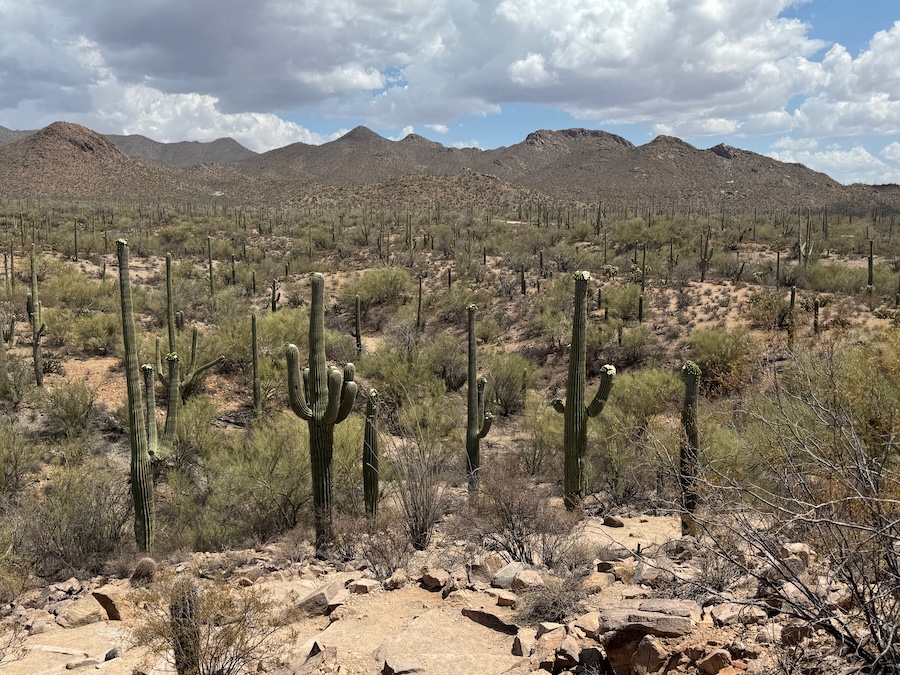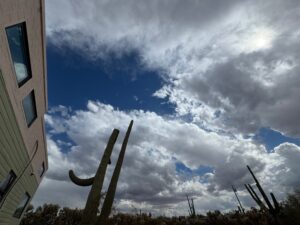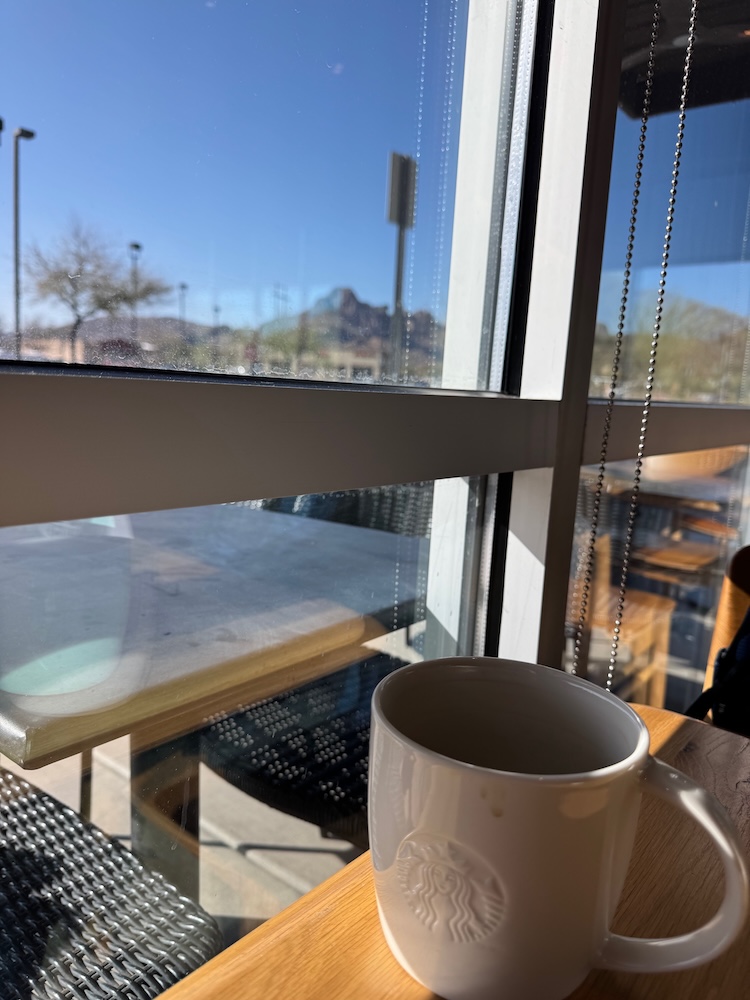The Weather Just Is
It was another windy day in Picture Rocks. The kind where it feels like Zeus himself is reminding us that “playtime is canceled.” No walk. No bike ride. No run.
At some point, you learn to stop arguing with the wind.
I used to think I could will the day into being what I wanted—schedule it, plan it, optimize it. Now I understand that some days don’t bend to your preferences. They bend you instead.
The Extremes We Live In
Here in the Sonoran Desert, we’ve been learning to live with extremes. One day it’s 49°F, the next, 101°F. The wind howls. The sun bakes. The night cools just enough to let you believe you’ll sleep.
We’re still working on what we call “climate control”—trying to normalize the inside of our tiny house against the chaos of the outside. And sometimes it feels more like we’re managing emotions than temperature.
It’s taught us something about acceptance. The desert doesn’t ask for your approval. It doesn’t care how you feel about the forecast.
The Weather in South Carolina

Last week, we were in Columbia, South Carolina, for my nephew’s and sister-in-law’s college graduation. Back in the land of humidity—mosquitoes, damp shirts, and air you can wear.
Walking back from dinner at an Asian restaurant, I found myself complaining. Not just noting the heat. Complaining. That kind of running commentary that starts with “this is awful” and spirals into “why is it like this?” as if my preferences matter to the climate.
I vented to Lori. She listened patiently. But really, what was I hoping would change?
Later I remembered an essay by William F. Buckley called “Why Don’t We Complain?” In it, Buckley describes the strange tendency we have to remain silent about things we could change, and then erupt about things we can’t. The air is too hot on the train, but we won’t ask the attendant. The movie projector is out of focus, but no one stands up to speak. Meanwhile, we stew.
And sometimes, we do speak—but for what?
Circles of Influence, Revised

The old model still helps: Circle of Influence vs. Circle of Concern. But I’ve been wondering if there’s another metaphor—maybe something more desert-native. Something like a cactus.
A cactus doesn’t try to shade the whole desert. It roots deeply, stores what it can, adapts. Some seasons it blooms. Others, it survives.
What if instead of trying to “control” the weather—or the day, or the outcomes—we just learned to notice what we can adapt to? What shade we can make. What routines keep us sane. What tea or coffee to drink when the wind starts up again.
Because sometimes, the best we can do isn’t control—it’s response.
What Complaints Reveal
When I complain about the weather, I’m not really talking about the weather. I’m naming a mismatch between expectation and reality.
The weather just is.
But I am not always okay with that. I want things to feel fair. Comfortable. Predictable. And when they aren’t, I reach for commentary. I reach for certainty. And sometimes, I reach for blame.
But weather doesn’t take feedback.
A Better Forecast

What I’m learning (slowly, stubbornly) is this: most of my life is not shaped by external conditions. It’s shaped by how I receive them. Whether I fixate or let go. Whether I whine or adapt. Whether I brace or breathe.
And so, I’m trying something different.
When the weather doesn’t cooperate, I put on a kettle of hot water.
When the forecast disappoints, I reframe the plan.
When the wind says “not today,” I try to hear “not yet.”
Because maybe the real forecast isn’t about temperature or pressure.
Maybe it’s just this:
“Today, there will be weather. How will you show up?”


